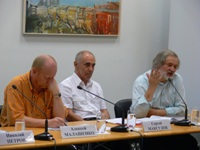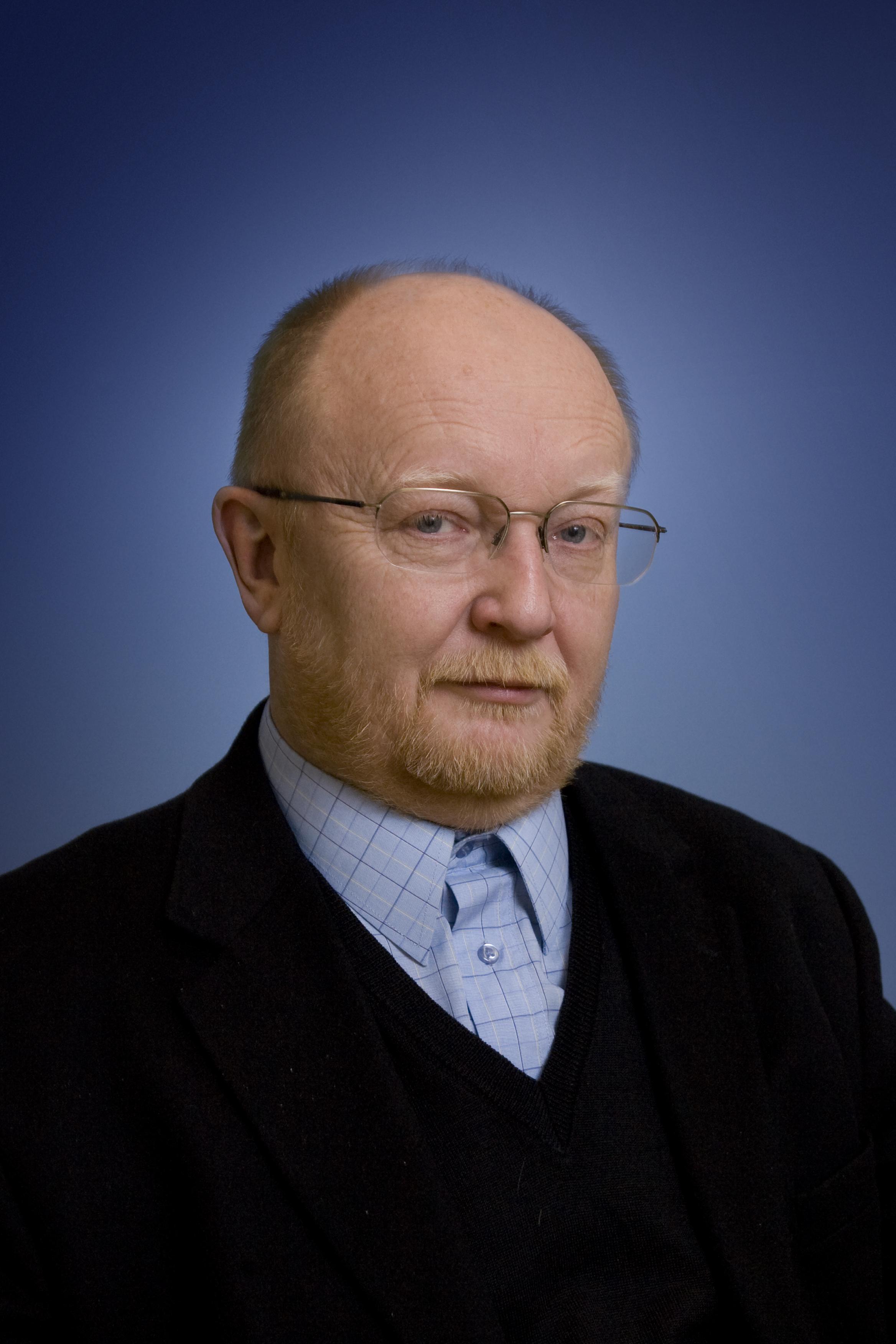{
"authors": [
"Sergei Maksudov",
"Вячеслав Игрунов",
"Alexey Malashenko",
"Nikolay Petrov"
],
"type": "event",
"centerAffiliationAll": "",
"centers": [
"Carnegie Endowment for International Peace",
"Carnegie Russia Eurasia Center"
],
"collections": [],
"englishNewsletterAll": "",
"nonEnglishNewsletterAll": "",
"primaryCenter": "Carnegie Endowment for International Peace",
"programAffiliation": "",
"programs": [],
"projects": [],
"regions": [],
"topics": []
}
Chechens and Russians: Victories, Defeats, and Losses
Fri, June 4th, 2010
Moscow
IMGXYZ2596IMGZYXIn the early 1990s, the Russian population of Chechnya began leaving their homes to live elsewhere in Russia. By 2010, a majority of the Russian population had been forced to leave the region due to military conflict, violence, and harsh conditions. The circumstances surrounding this exodus and the deterioration of Russian-Chechen relations must be better understood if the Russian authorities wish to cultivate positive relations between Chechens and Russians and to avoid similar developments in other parts of Russia, particularly in the Caucasus.
Harvard University historian and writer Sergei Maksudov (also known as Alexander Babyonyshev) came to the Carnegie Moscow Center to discuss his new book, Chechens and Russians: Victories, Defeats, and Losses (Institute for Humanities and Political Studies, 2010). The book examines the history of Russian-Chechen relations in the North Caucasus from the nineteenth century to the present, with a special focus on the recent flight of the Russian-speaking population from the region. He was joined by the book’s editor and publisher, director of the Institute for Humanities and Political Studies, Vyacheslav Igrunov. Carnegie’s Alexey Malashenko moderated.
Interethnic Relations in Chechnya Before and During the Wars
The Russian population, many of whom had lived in the region for centuries, began leaving Chechnya during the so-called “Chechen revolution,” connected with the upsurge of Chechen nationalism in the early 1990s, Maksudov explained. At that time, the Chechen population began to arm itself, and relations between the Chechens and the Russian population changed dramatically.
- Russians Leaving Chechnya: At the start of the 1990s, the republic’s Russian-speaking population numbered more than 300,000. Since then, as many as 200,000 have left.
- Russian Casualties: According to official statistics, some 20,000 from among the Russian-speaking population were killed over this period. Maksudov contended that this is an inflated figure, however. The Chechens were primarily interested in taking over Russian property and assets by forcing the Russians to leave. Maksudov suggested that while some Chechens sought to rob and humiliate the Russian-speaking population of Chechnya, they did not generally seek to kill them. Killings more likely took place in cases when people tried to put up resistance, Maksudov concluded.
- Chechen Casualties: According to Maksudov, figures given for the number of Chechens killed in the two Chechen wars are also inflated. The actual number is around 28,000, he argued, including civilians, police, and people defending the local authorities.
Objective Analysis Impossible
An objective reflection on the Chechen wars remains impossible, since “we are still living through them,” argued Malashenko. Russians and Chechens have their own perceptions of the events that took place in Chechnya, resulting in significantly different interpretations. Some Chechens, Maksudov asserted, see these two wars as an invasion that caused the destruction of their peaceful life and deprived them of their property. The proponents of that position, he argued, do not recognize that they also bear a share of responsibility for the two wars.
Chechnya Today
Chechnya today has basically become a semi-independent vassal state, outside of Moscow’s control, Igrunov contended. This vassal state’s existence within Russia is directly related to Chechen President Ramzan Kadyrov’s personal loyalty to Russian Prime Minister Vladimir Putin, and a change in leadership could result in further deterioration of relations between Chechnya and Russia and more suffering in the region.
The Future for Russian-Chechen Relations
Maksudov placed the blame for the Chechen tragedy primarily on former President Boris Yeltsin, who gave the order to use military force in the republic. But Chechen nationalists need to realize that the way they had been treating the Russian population before the war was unacceptable. Both Russians and Chechens must recognize their responsibility for the circumstances that led to war; only then can these two peoples build the foundations for normal and productive relations.
Carnegie does not take institutional positions on public policy issues; the views represented herein are those of the author(s) and do not necessarily reflect the views of Carnegie, its staff, or its trustees.
Event Speakers
Sergei Maksudov
Вячеслав Игрунов
Malashenko is a former chair of the Carnegie Moscow Center’s Religion, Society, and Security Program.
Nikolay Petrov was the chair of the Carnegie Moscow Center’s Society and Regions Program. Until 2006, he also worked at the Institute of Geography at the Russian Academy of Sciences, where he started to work in 1982.

